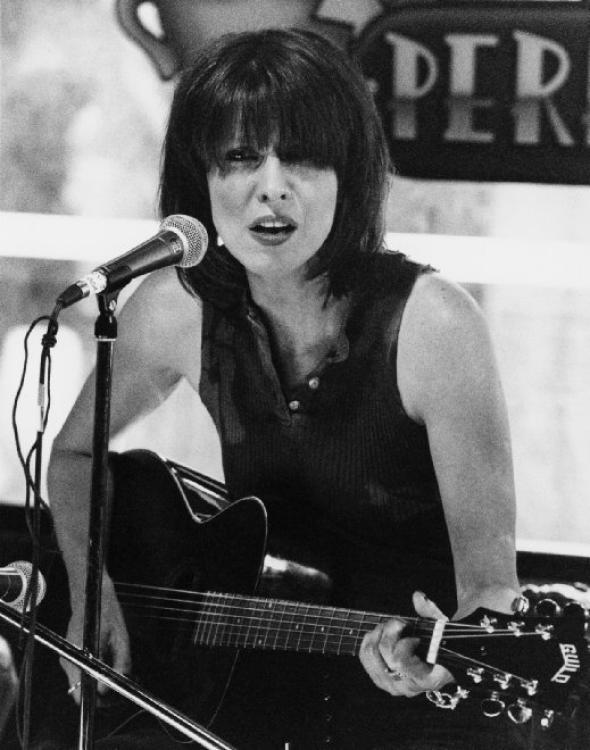The women of Sunday night’s MTV Video Music Awards showed the resilience of what the New York Times called “the recent movement toward being naked-while-clothed,” as shown in the fashion choices of Nicki Minaj, FKA twigs, and the many, many barely-there costume changes of host Miley Cyrus. Cyrus came in for some legitimate criticism for her racially tinged missteps (e.g., the “mammy” business with Snoop Dogg) and her clumsy response to Minaj’s maybe-staged onstage challenge. But mostly, the Twitter commentariat seemed worried that Cyrus’ relative lack of clothing corresponded to a lack of self-respect. Just put “Miley” and “self respect” into Twitter and enjoy the waterfall of disdain and concern-trolling. There’s a lot of people out there who think that showing skin means you don’t value yourself or your body.
Maybe some VMA-watchers long for a return to a better time, a simpler time, when some of pop music’s pre-eminent female artists were also wearers of clothing—of long sleeves and pants, even! Take Chrissie Hynde, legendary frontwoman of the Pretenders, she of the button-down and the occasional blazer. That Chrissie Hynde had some self-respect! Right?
As it happens, Hynde recently had some thoughts to share about how to apportion blame when a man rapes a woman. “If I’m walking around in my underwear and I’m drunk? Who else’s fault can it be?” Hynde argued to the Sunday Times. “If I’m walking around and I’m very modestly dressed and I’m keeping to myself and someone attacks me, then I’d say that’s his fault. But if I’m being very lairy and putting it about and being provocative, then you are enticing someone who’s already unhinged—don’t do that.”
And so on. Hynde has publicly complained about Rush Limbaugh using her band’s song “My City Was Gone” as his show’s bumper music, but perhaps they have more opinions in common than she thinks.
The question of rape and blame isn’t an abstract one for Hynde, who said these awful things to explain why, in her new book Reckless, she blames herself for being raped by a member of a motorcycle gang when she was 21. “Technically speaking, however you want to look at it, this was all my doing and I take full responsibility,” Hynde said. “You can’t f— about with people, especially people who wear ‘I Heart Rape’ and ‘On Your Knees’ badges. … Those motorcycle gangs, that’s what they do.”
Technically speaking, rape is caused by men who choose to rape. But instead of quibbling with Hynde, it’s more useful to put her comments in context. Hynde came up in music at a time when the industry was even more ridiculously male-dominated than it is now. For a lot of women of the era, playing along with misogynist attitudes—even to the point of internalizing them—was a necessary survival strategy.
You see this dynamic at play in the story of Jackie Fuchs of the Runaways, whose manager, Kim Fowley, allegedly raped her in front of multiple witnesses. Fuchs describes a scene where nearly all the women present—including Joan Jett—saw the rape happening and did nothing. No one wanted to be seen as some kind of feminist buzzkill. You wouldn’t get invited back to the parties, much less get record contracts and a shot at making a living as a musician.
Today, things are infinitely better for women in pop—even the scantily clad ones! They call themselves feminists. Nicki Minaj openly criticizes double standards in the industry. Taylor Swift, in a clumsy but nonetheless earnest way, is modeling female solidarity. Amber Rose and Blac Chyna showed up to the VMAs in outfits that protested rape and harassment culture. Miley Cyrus offered up a drag queen–heavy performance that was tailor-made to mess with the heterosexual male gaze. Whatever they chose to wear, women in pop are pushing back against attitudes that used to be the price of doing business. Chrissie Hynde’s shocking comments are just a measure of how far they’ve come.
